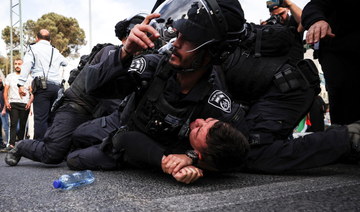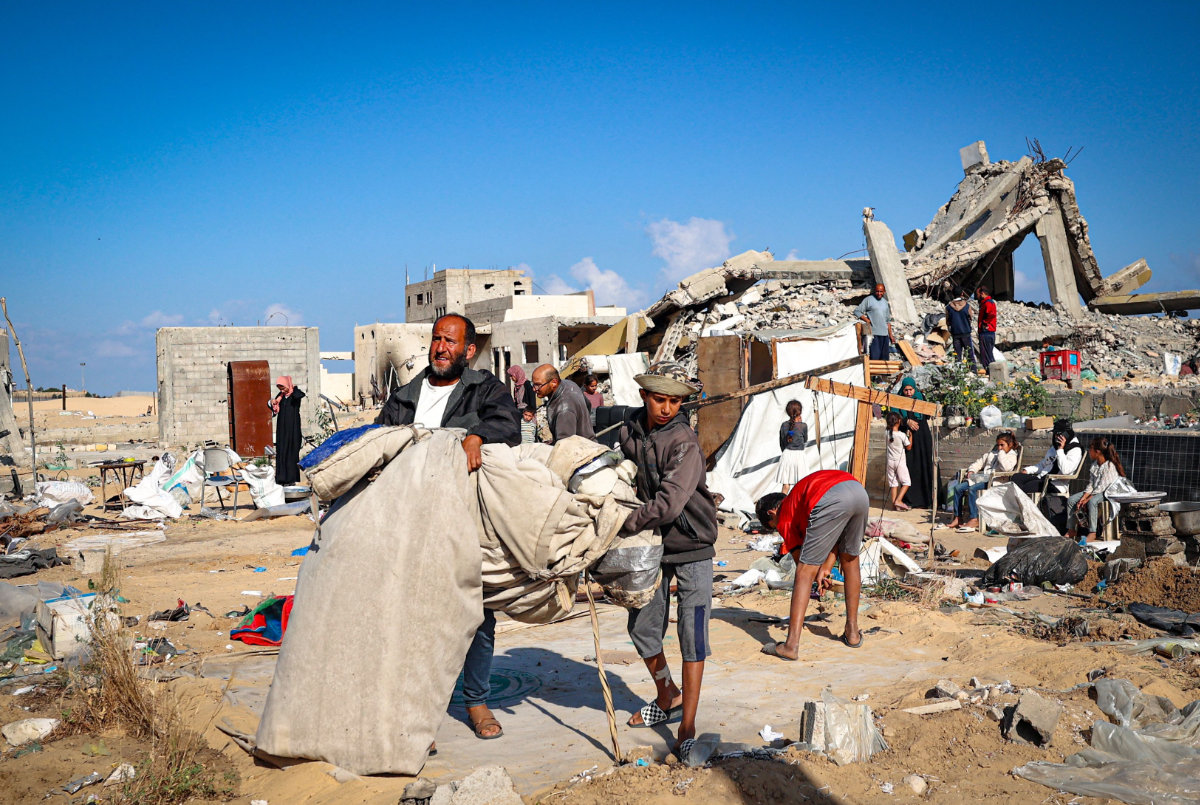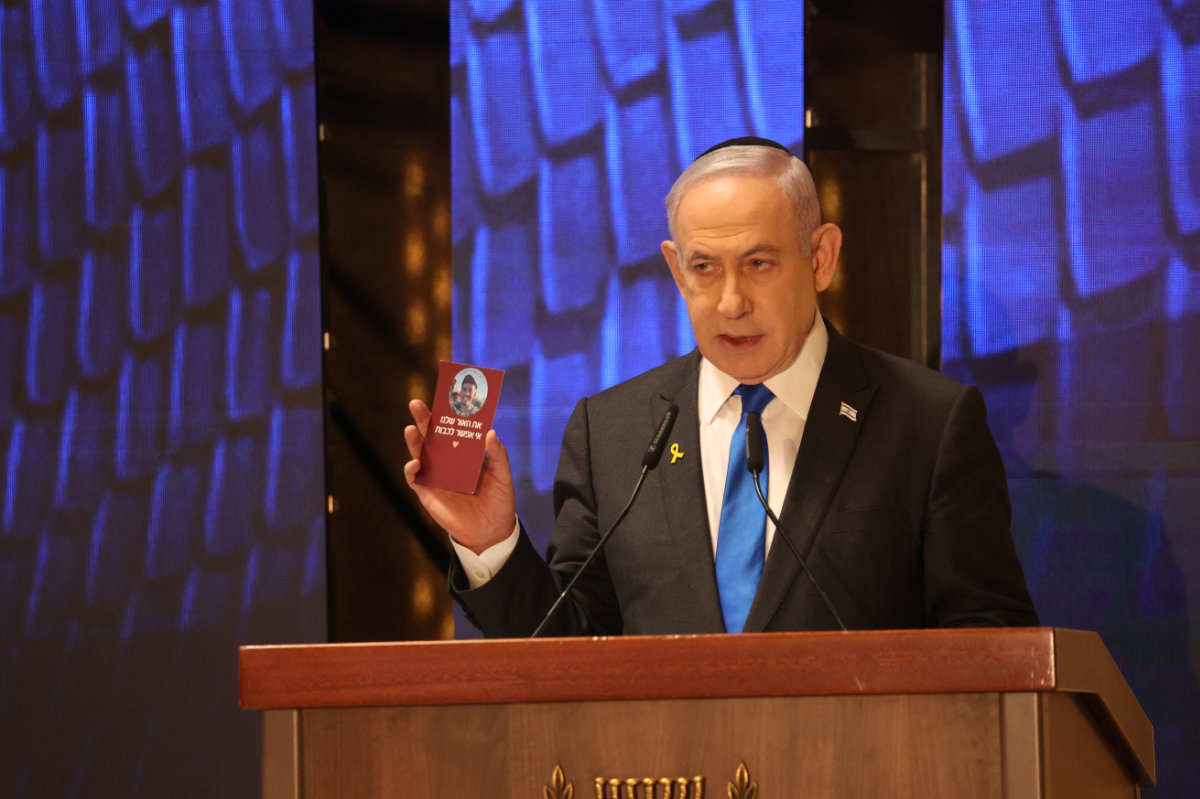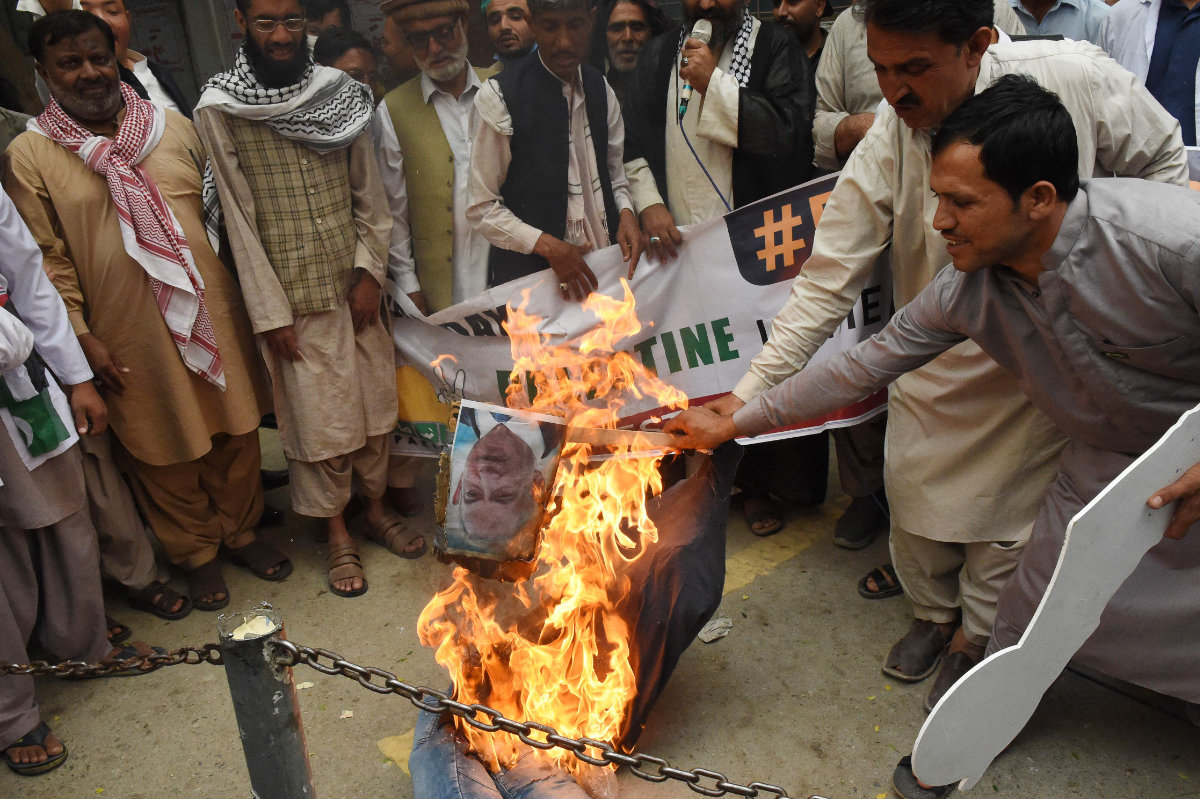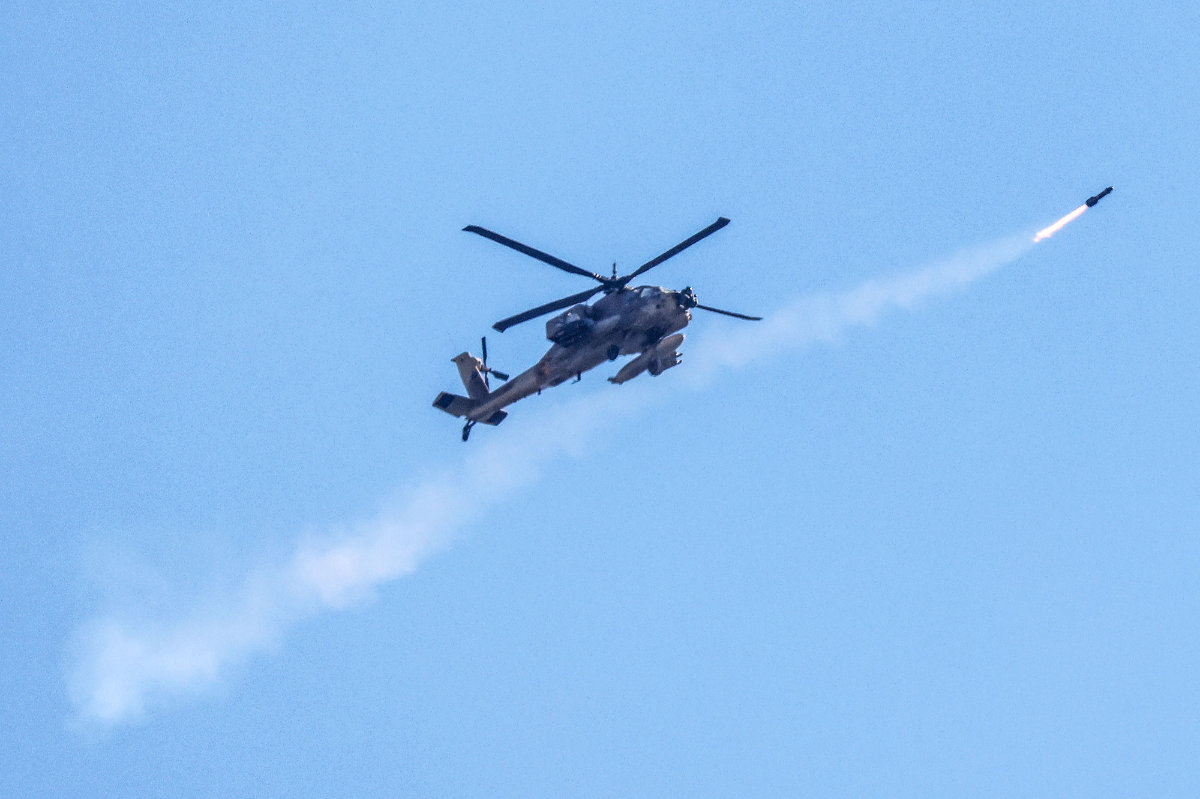RAMALLAH: Shocking scenes of Israeli police violence marred a funeral procession on Friday for Shireen Abu Akleh, the US-Palestinian journalist shot dead by Israeli soldiers this week in the Jenin refugee camp in the occupied West Bank.
Israeli police officers charged at mourners carrying Abu Akleh’s coffin through Jerusalem’s Old City toward the gates of St. Joseph’s Hospital. Police burst through the courtyard gates and charged at the crowd, kicking and beating pallbearers with batons, and arresting a wanted member of the Islamic Jihad militant group and demolishing his house.
At one point the group carrying the coffin almost dropped it as they were forced back against a wall, recovering just in time as stun grenades detonated around them. Police fired tear gas canisters and rubber bullets at the mourners in an attempt to stop them raising Palestinian flags.
Police lobbed tear-gas shells and fired rubber bullets at the chanting mourners in a bid to stop them raising Palestinian flags in the old city. Through loudspeakers, an Israeli officer warned the hospital would be stormed within minutes if the chants continued. Police imposed strict conditions for the burial, including a ban on chanting and the raising of flags.
At least 13 people were injured in the raid, which followed clashes between Israeli police and mourners at the funeral of veteran Al-Jazeera reporter Shireen Abu Akleh in East Jerusalem.
Deputy UN spokesperson Far- han Haq said the scenes were “very shocking” and the US ambassador to the UN, Linda Thomas-Greenfield, said she was “deeply distressed by the images.” The EU said it was appalling, and White House press secretary Jen Psaki said: “We have all seen those images, they’re obviously deeply disturbing.”
Abu Akleh was shot and killed earlier this week while covering a military raid in the occupied West Bank. The Palestinian Authority has blamed Israeli gunfire for her death.
Israel’s military said earlier that its initial investigation showed that a heavy firefight was underway about 200 meters from the spot where Abu Akleh died, but that it was unable to determine whether she was shot by Israeli forces or Palestinian militants.
Israel has called for a joint investigation with the PA and for the bullet to be handed over for forensic analysis to determine who fired the fatal round.
The PA has refused, saying it will conduct its own investigation and send the results to the International Criminal Court, which is already investigating possible Israeli war crimes.
The US administration has also urged the PA to cooperate with Israel in the probe, but the authority has rejected that request.
An Israeli soldier died from wounds suffered during Friday’s raid near Jenin.
A large number of Israeli troops stormed Jenin camp early on Friday, sparking armed clashes with Palestinian fighters.
Israeli forces blew up the house of the wanted man, Mahmoud Al-Daba’i from the Islamic Jihad militant group. Four other civilian homes were shelled.
Mohammed Al-Daba’i, the father of the wanted man, confirmed that his son had been arrested after their homes were targeted.
Nabil Abu Rudeineh, the spokesperson for the Palestinian presidency, said the attack on Jenin came “as a continuation of the ongoing Israeli war against our people, coinciding with the current settlement policy in all Palestinian territories, which creates more tension and escalation for which the Israeli government bears full responsibility.”
He warned that events in Jerusalem and the rest of the Palestinian territories “will push matters toward a comprehensive explosion that cannot be controlled.”
Abu Rudeineh called on the US to stop the Israeli attacks, “which are making the situation reach the point of no return.”
Ghassan Al-Khatib, a Palestinian political analyst, told Arab News that Abu Akleh’s funeral showed the world, via a live broadcast, the tragedy and daily suffering of Palestinians at the hands of occupation forces.
“For the first time, the world was informed live about the brutal and unjustified attacks of the Israeli occupation forces on the Palestinians. Even a deceased Christian civilian who held American citizenship was not spared and was subjected to this degree of brutality.”
Prominent Palestinian journalist Mohammed Daraghmeh, Abu Akleh’s close friend, told Arab News that the funeral had restored Jerusalem’s Palestinian identity.
“It is forbidden to raise Palestinian flags in Jerusalem, but the flags were raised, and a sea of people amid tears bid her farewell on her last journey. Christian churches of various denominations rang bells, and mosques performed prayers for her, even though she was Christian.”
Daraghmeh added: “The Palestinians felt that the targeting of Abu Akleh with Israeli bullets amounted to an attack on their voice, so they went out to express their anger over this atrocity.”





